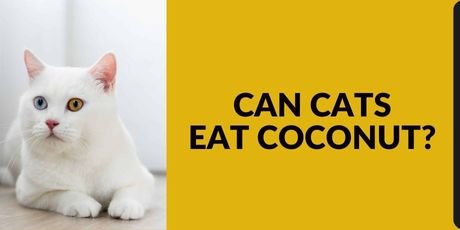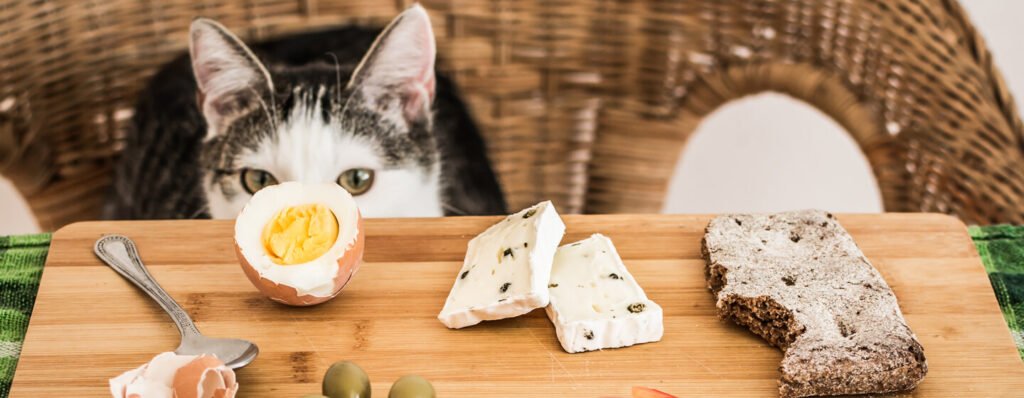Looking into the feline world, the question “Can cats eat coconut?” often takes center stage among pet owners, especially considering coconut’s popularity in human world cuisines like curries and summer drinks. But when it comes to our feline friends, this all-rounder ingredient demands a closer examination.
The primary concern for cat owners is whether coconut is poisonous to their pets. Here’s the good news coconut is not toxic to cats. However, this doesn’t automatically make it a recommended snack. In my experience with cats, while they might show interest in coconut, it’s not an ideal food choice for them.
Delving deeper into the effects of coconut on cats, one might ponder if it enriches their health or smoothest their hair. It’s tempting to think that the beneficial oils in coconut could mirror the effects they have on humans. However, cats have different nutritional needs. Their bodies aren’t designed to process some fats and oils that humans can easily digest.
As a pet owner, I’ve observed that while cats might not immediately suffer from eating small amounts of coconut, it doesn’t provide any significant health benefits. The high fat content in coconut might lead to stomach upsets or other digestive issues in cats.
When considering coconut as a treat for cats, it’s essential to weigh its nutritional value against potential risks. While it’s not a harmful food, it’s not particularly beneficial either. The key is moderation and understanding that what works in the human world might not always be suitable for our feline companions.
Is Coconut Good for Cats?
In the realm of feline nutrition, the question of whether coconut flesh is a good option for your cat’s dinner sparks much debate. While coconuts are rich in nutrients like iron and manganese, they lack the protein content cats fundamentally need. As carnivores, cats derive the majority of their nutrition from animal proteins, such as chicken, essential for their health and wellbeing. Despite coconut’s protein content, it’s wrong to consider it a suitable staple in feeding your kitty. Offering huge amounts regularly could lead to nutritional imbalances, given their specific dietary needs.
Unusual in the feline diet, the fruit coconut poses serious concerns for our feline friends. Its high-fat content is bad news for cats. This high-fat content can cause health issues like hyperlipidemia, pancreatitis, and obesity in cats. These are significant reasons why you should not feed coconut to your cat regularly. While the occasional small treat might not be harmful, incorporating coconut as a regular part of their diet could lead to serious health complications.

Feeding Your Cat Coconut
Looking into the topic of “Feeding Your Cat Coconut,” one might wonder if various forms of coconut are safe for your cat. The best way to treat your kitty to the taste of coconut is by offering freshly shredded coconut in small amounts as a satisfying snack for your feline friends. While coconut isn’t inherently harmful, moderation is key to ensure it remains a safe and enjoyable treat for them.
In the realm of feline nutrition, the coconut flavor often piques the interest of many a curious kitty. My own experience with cats has shown that they can indeed develop a craving for this exotic taste. However, it’s crucial to approach this with knowledge and caution.
When considering coconut oil, I would advise against feeding it straight to your cat. Despite its potential benefits, coconut oil is high in fat, which can be problematic for cats. Instead, incorporating just a couple of drops into your cat’s food or homemade treats can be a safer option. This way, the intake remains at a minimum, and you avoid the risks associated with its high-fat content.
Moving on to coconut water, it’s a common misconception that this liquid from premature green coconuts is a healthy hydration choice for kitties. Unfortunately, this is not the case. Coconut water is high in potassium, which can lead to hyperkalemia, a condition characterized by unhealthily high levels of potassium in the blood. This can have serious effects on your cat’s heart health. Similarly, coconut milk also poses certain health risks due to its fat content and should be avoided.
Also Read: Can Cats Eat Cucumbers?
Is Coconut Safe for Cats?
In my journey as a pet owner, I’ve often pondered whether coconut in any form is safe for cats. When reaching for coconut meat, shredded coconut, or dried coconut flakes, it’s crucial not to forget the potential risks involved. While these forms of coconut are commonly available, it’s important to remember that a cat’s digestive system may not handle them as well as ours. The high fat content in these coconut products, though tempting, can pose health risks to our feline friends. Hence, moderation and careful consideration are key when introducing any new food item to your cat’s diet.
Do Cats Like the Taste of Coconut?
As an obligate carnivore, a cat’s dietary preference leans heavily towards animal protein, and they usually don’t show much interest in plant-based foods. From my observations, cats may not actively seek out or enjoy eating coconut meat, shredded coconut, or coconut flakes. However, they can sometimes be enticed by the forbidden allure of creamier options like coconut yogurt or coconut milk. It’s essential to avoid such accidents and best to keep these items out of your cat’s reach to ensure their safety and well-being.
Can Cats Have Coconut Oil or Coconut Milk?
In the feline world, coconut oil and coconut milk can be a source of confusion for pet owners. While small amounts can be okay to feed your cat, caution is necessary due to their high in fat and, in the case of coconut water, high in potassium content. These can lead to ailments if not managed properly. However, coconut oil has benefits like aiding with hairballs and dry skin, serving as a moisturizer. The good fats in it can keep your cat’s fur glossy and their joints comfortable. Moreover, its anti-inflammatory and antibacterial properties can be beneficial when fed or applied directly to the skin and fur. It’s crucial to check with your veterinarian if you have any concerns or if your cat has an underlying health issue before adding these to their diet.
Also Read: Can Cats Eat Olives?
How Much Coconut Can a Cat Eat?
Determining the right amount of coconut products for your cat can be tricky. Whether it’s coconut meat, coconut oil, or even coconut milk, all are high in fat and even a small amount can upset your cat’s stomach, especially if they’ve never had coconut before or are prone to digestive upsets or pancreatitis. As a guideline, start with a portion the size of a little fingernail to see if they enjoy it without any digestive problems. If well-tolerated, you can increase the amount gradually, but keep it to a maximum of about two thumbnails per portion. This applies to coconut water as well, as it might make cats unwell and is generally not recommended.

How Often Can a Cat Eat Coconut?
When considering how often to feed your cat coconut, it’s essential to remember its high-fat levels that can easily upset a cat’s stomach or lead to pancreatitis. A safe portion would be once or twice a week, which is enough for them to enjoy the benefits without overindulgence. This rule should also apply to using coconut oil on their skin. While it can be beneficial, frequent application might lead to excessive licking, which should be monitored to avoid any digestive issues.
Is Coconut Used in Commercial Cat Food?
Coconut is occasionally used in commercial cat food, but it’s crucial to understand the proportions and balance. These foods are formulated to be appropriate for a cat’s dietary needs, considering that coconut is high in fat and calories. Manufacturers often use it in combination with other ingredients to ensure the diet provides all the vital nutrients without the risks associated with excessive fat intake. As a pet owner, it’s important to read labels and understand how coconut contributes to the overall nutritional profile of your cat’s food.
Also Read: Can Cats Eat Fish Food?
Is Coconut Bad for Cats?
The risks of feeding coconut to a cat should be considered with care, especially if they have a history of pancreatitis or a sensitive stomach. Coconut is a fatty food, and cats can develop symptoms like vomiting, diarrhea, or tummy pain after eating it. It’s essential to feed only small amounts at first to gauge how your cat reacts to it. Each cat is unique, and while some may tolerate coconut well, others might experience discomfort. As a responsible pet owner, observing your cat’s response to new foods is crucial for their health and wellbeing.
While coconut water may seem like a healthy, hydrating option, it’s important to note that it’s high in potassium, a mineral crucial for various functions in the body, including sending signals to the heart. However, too much potassium can lead to hyperkalemia, a condition that can dangerously slow a cat’s heart rate, potentially causing a heart attack. This risk makes coconut water a less advisable choice for feline hydration.
Coconut, as an ingredient in various foods and dairy alternatives, should be approached cautiously when it comes to our feline family members. Much like how cats are generally lactose intolerant to cow’s milk, they can also have a sensitive reaction to dairy alternatives like coconut yogurt, coconut milk, coconut ice cream, and coconut whipped cream, primarily because these are high in fat. Such items, despite being dairy-free, can still lead to stomach upset in cats, making them less ideal for feline consumption.
Dangers of Feeding Cats Coconut
When considering caveats in the rule of giving human food to a cat, it’s vital to align with their unique feline health needs. As a veterinarian might advise, what suits us may not be ideal for our individual four-legged friend. The composition of coconut, though harmless in small amounts to humans, might not align with the dietary requirements of cats, making it a cautious choice for pet owners.
Additionally, the high fat content in coconut, especially its medium chain triglycerides (MCT), while often considered safe for pets, poses risks when consumed in large quantities. For cats, consuming too much fat can lead to a buildup associated with hepatic lipidosis, a disease that affects the liver. This condition can be particularly dangerous and potentially life-threatening for cats, underscoring the need for moderation and caution when introducing coconut into their diet.
There are significant health concerns associated with the high fat content of coconut for cats. Conditions such as hyperlipidemia and pancreatitis can be exacerbated by the consumption of high-fat foods. Additionally, being a high-calorie food, coconut increases the risk of obesity and other weight-related issues in cats if consumed on a regular basis. These potential health risks highlight the importance of being cautious with coconut in a cat’s diet.
People Are Also Interested In:
Can coconut make cats sick?
Fatty foods like coconut can make cats sick, potentially causing upset in their digestive system, vomiting, loose stools, or inflammation of the pancreas gland (pancreatitis); therefore, it’s advisable to feed only a small amount of coconut meat or coconut oil.
Why do cats eat coconut?
Cats may be drawn to the creamy texture of coconut cream, coconut yogurt, or coconut milk, as they mimic dairy milk alternatives, but these should be avoided due to their high in fat content.
Also Read: Can You Microwave Cat Food?
Why does my cat love coconut?
Some cats may love the taste of fresh coconut as a treat; it’s safe in a tiny amount, maybe once or twice a week.
Is coconut good for cats’ skin?
Coconut oil can make a cat’s skin healthier, especially if it’s dry or causes dermatitis; however, for specific treatment, always consult a veterinarian before trying home remedies.







